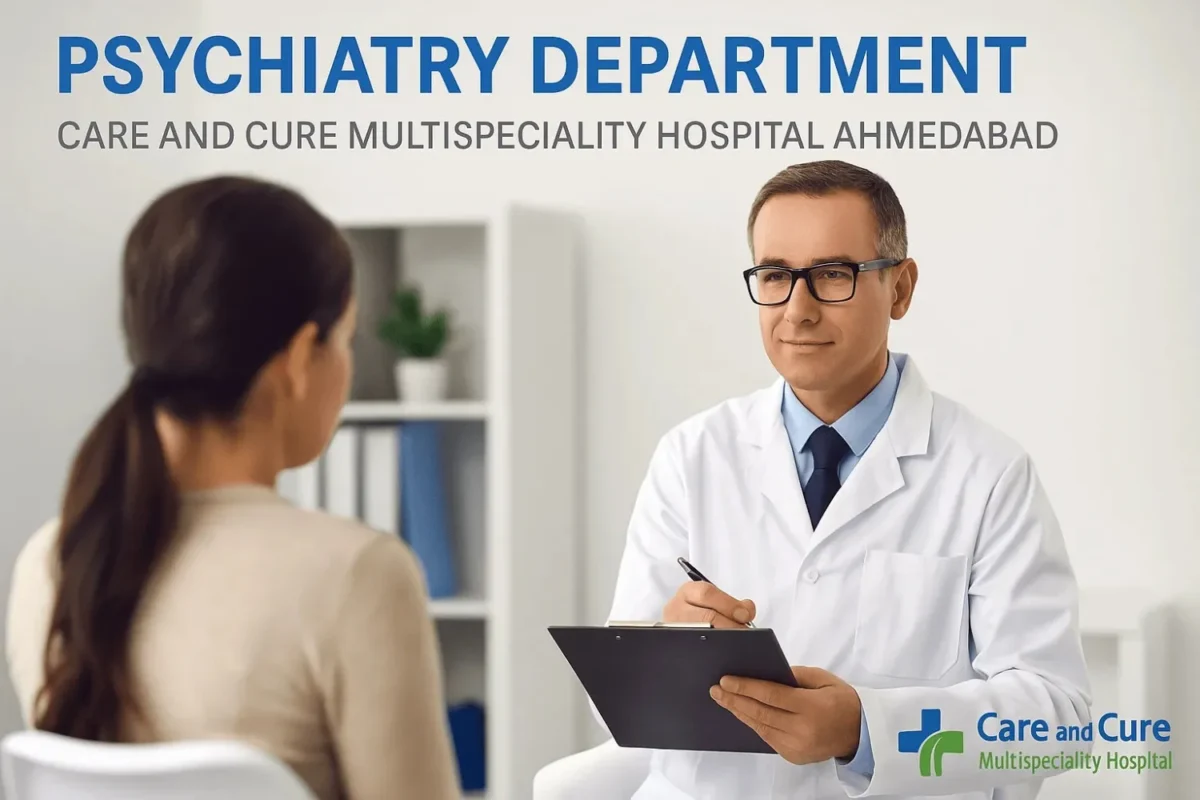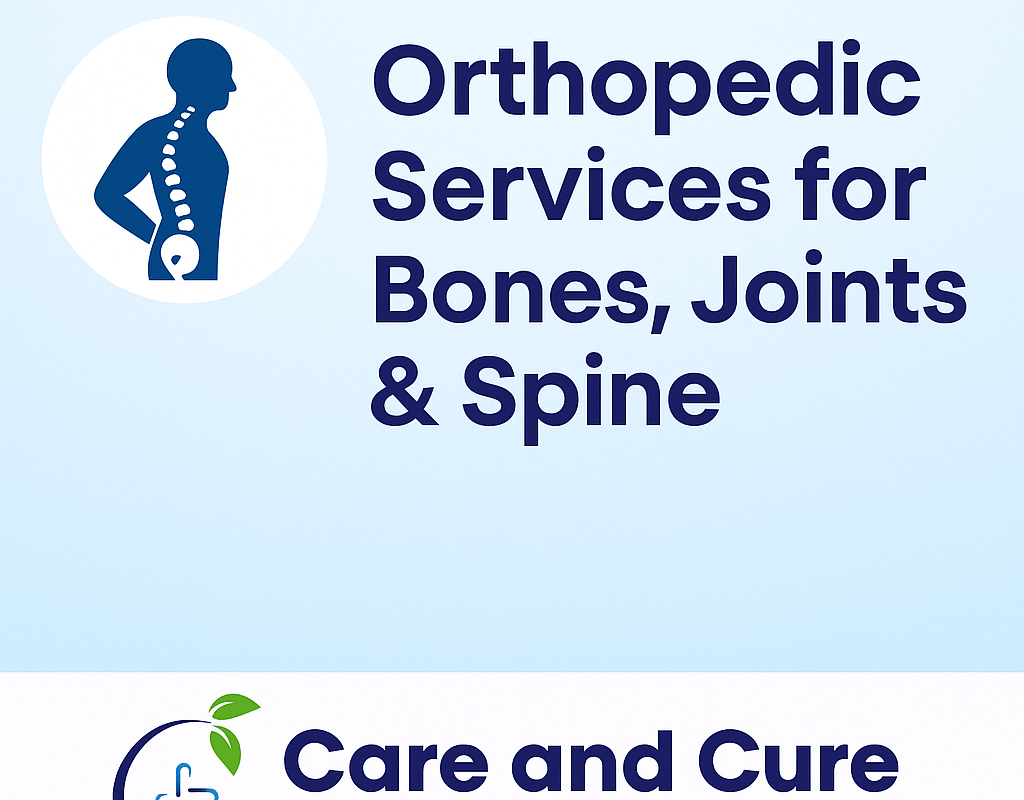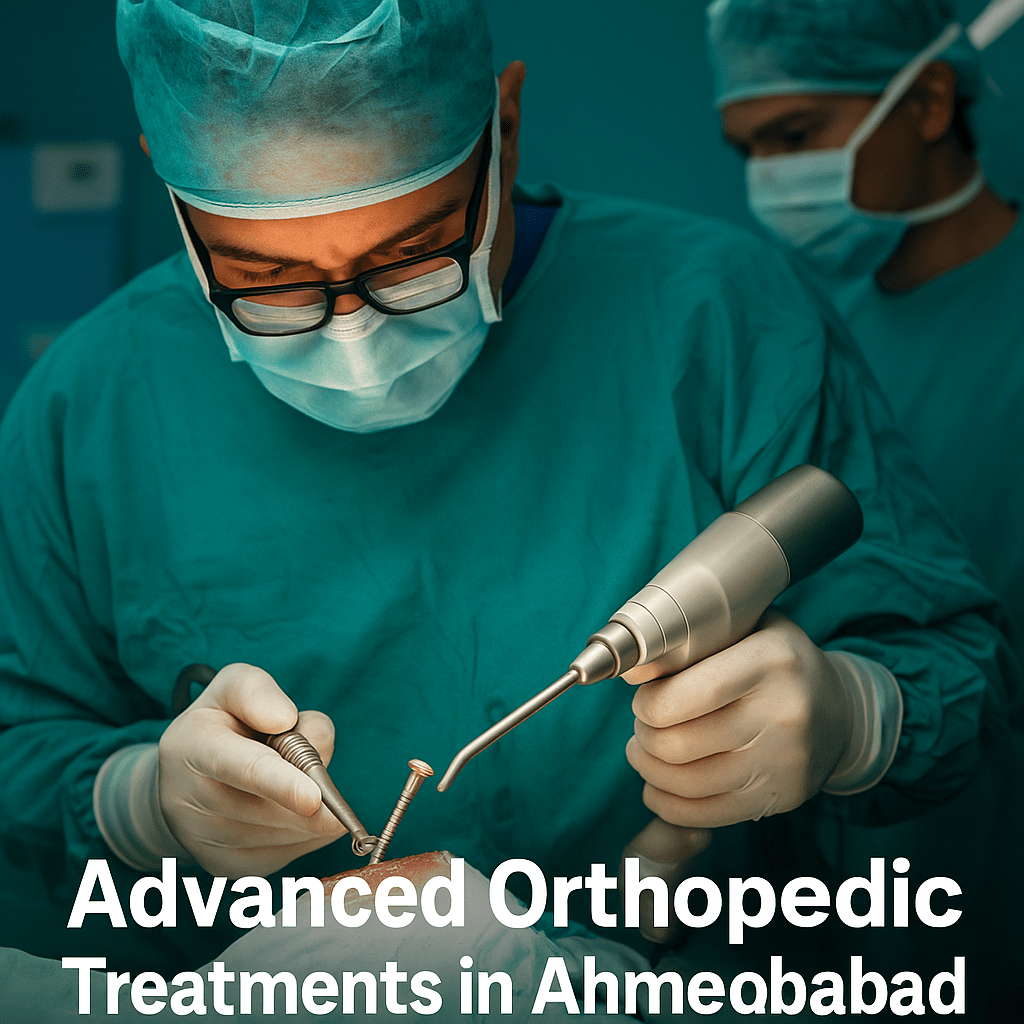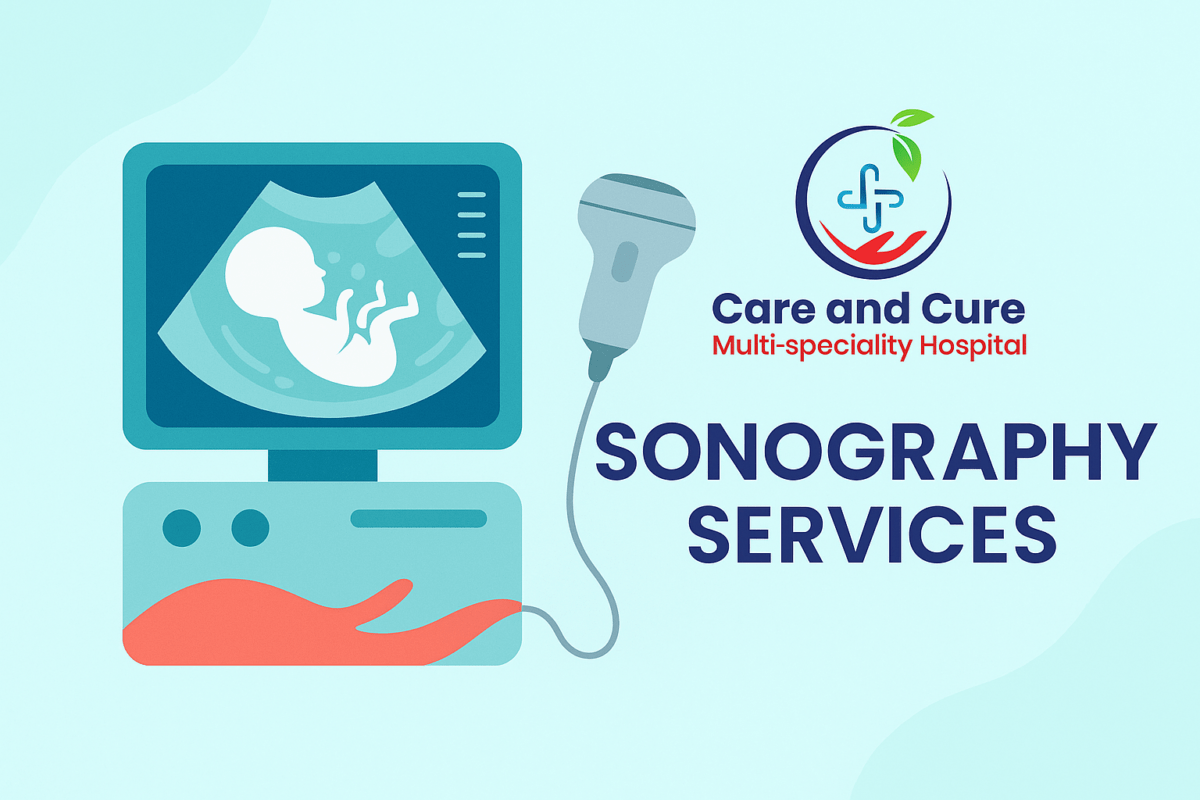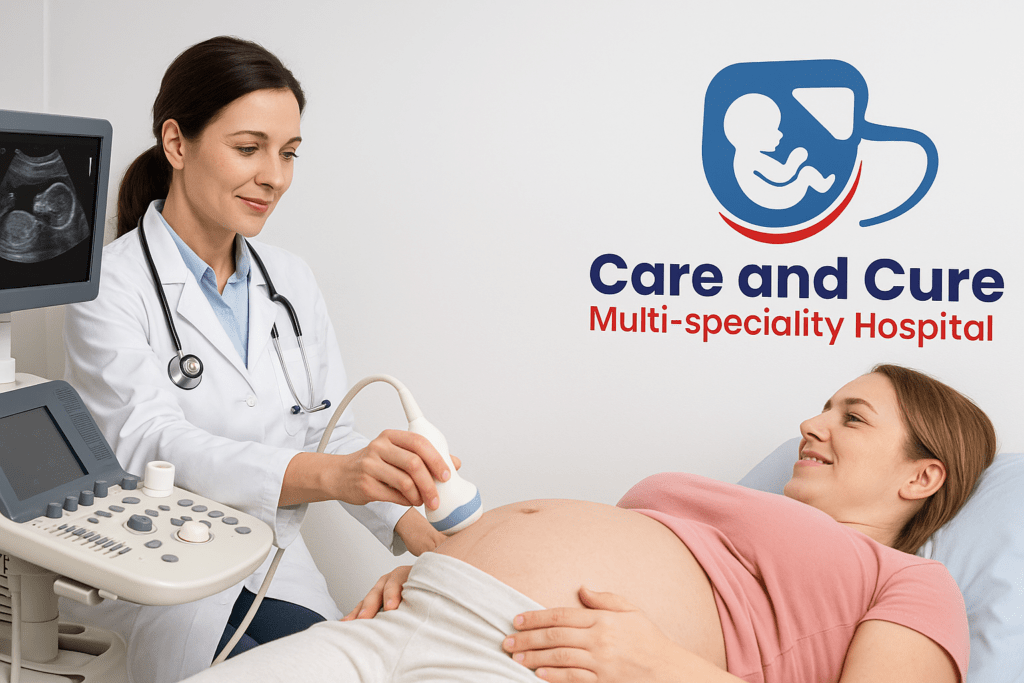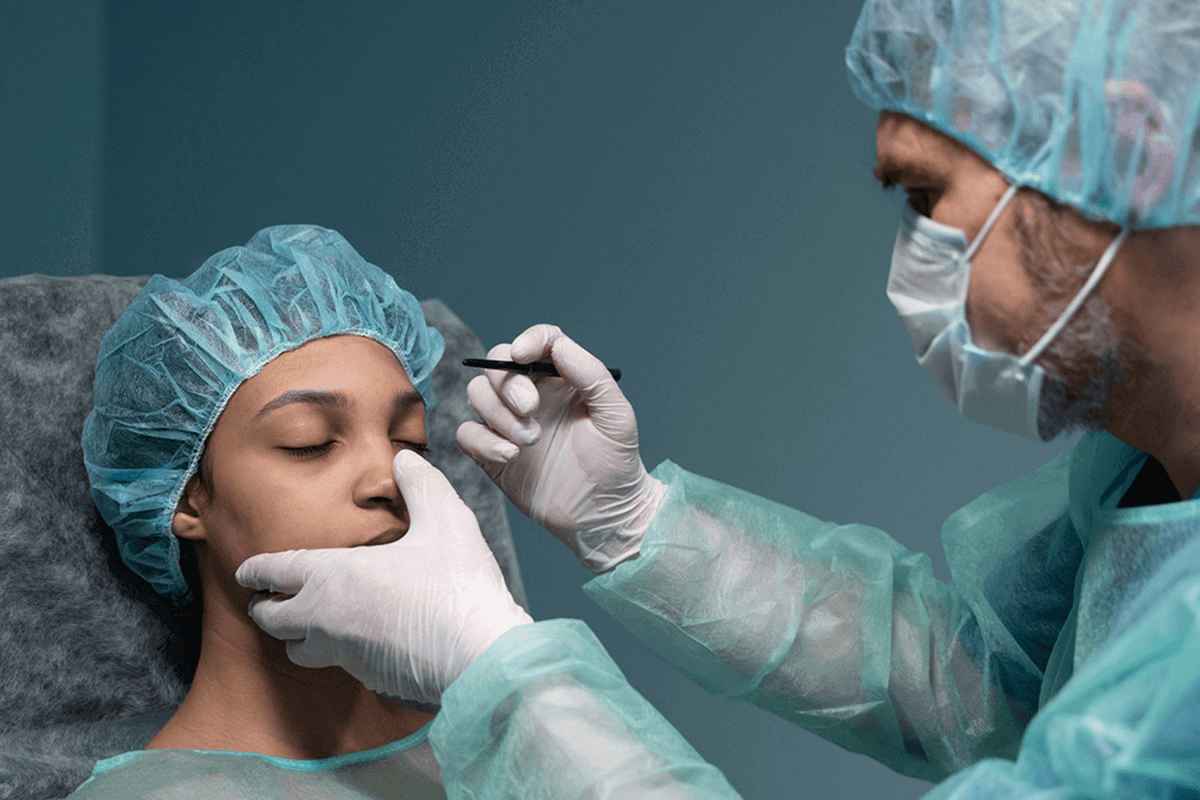Mental health is a vital part of overall well-being, influencing how we think, feel, and live each day. Unfortunately, stress, lifestyle changes, and emotional challenges have made mental health concerns more common than ever. From anxiety and depression to addiction and trauma, millions silently struggle with emotional distress.
At Care and Cure Multispeciality Hospital Ahmedabad, the Psychiatry Department is dedicated to helping patients regain balance, confidence, and control over their lives. With an experienced team of psychiatrists, psychologists, and therapists, the department provides professional yet compassionate care for individuals of all ages. The goal is not only to treat mental illness but to promote lasting emotional wellness and peace of mind.
Understanding Psychiatry
Psychiatry is a branch of medical science that focuses on diagnosing, preventing, and treating mental, emotional, and behavioral disorders. Unlike general counseling, psychiatry involves both medical and psychological approaches to identify and address the root causes of distress.
The department at Care and Cure Hospital helps patients manage conditions such as depression, anxiety, panic attacks, schizophrenia, bipolar disorder, addiction, and sleep disturbances. The psychiatrists also work with families to build awareness, reduce stigma, and provide support for long-term recovery. Every treatment plan is personalized, based on the patient’s history, mental state, and unique needs.
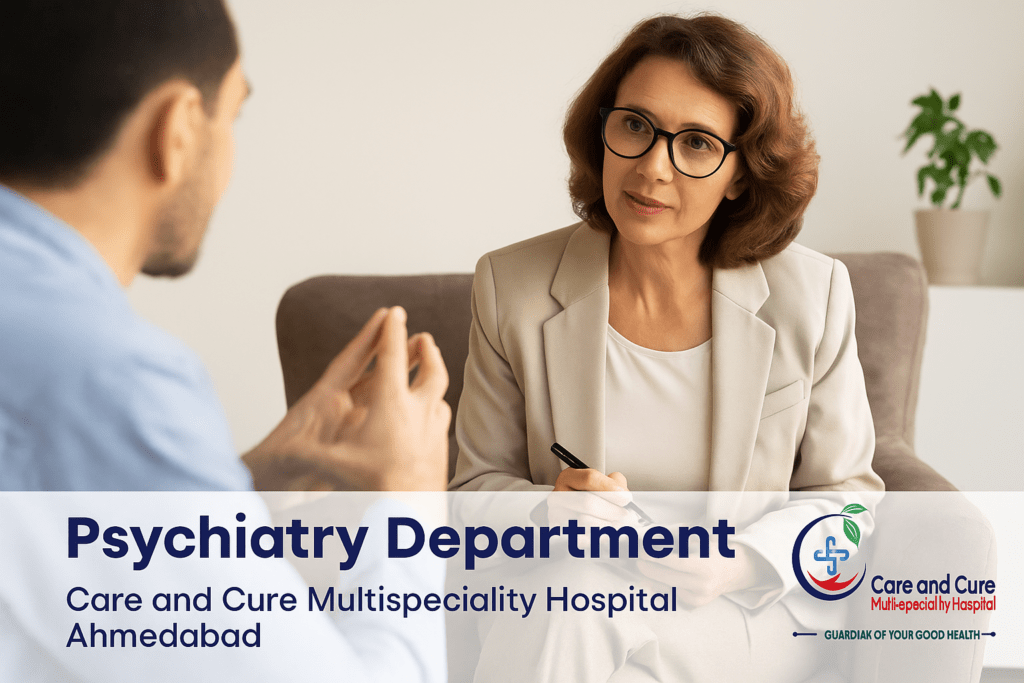
Psychiatric Services at Care and Cure Hospital
The Psychiatry Department at Care and Cure Multispeciality Hospital offers comprehensive diagnostic, therapeutic, and recovery services. Each case is handled with empathy, confidentiality, and evidence-based medical care.
Diagnostic Evaluation and Psychological Testing
Every journey begins with a thorough evaluation. The psychiatrist conducts interviews and psychological assessments to understand the patient’s mental health status. These may include personality tests, cognitive function evaluations, and mood assessments. The goal is to pinpoint underlying causes, whether biological, psychological, or social, and build a tailored treatment plan.
Counseling and Psychotherapy
Psychotherapy, often called “talk therapy,” plays a major role in psychiatric care. It allows patients to express feelings, understand behavior patterns, and develop coping strategies. At Care and Cure, various therapies are used, such as:
Cognitive Behavioral Therapy (CBT): Helps patients challenge negative thoughts and develop positive behavior patterns.
Dialectical Behavioral Therapy (DBT): Effective for mood regulation and emotional control.
Family and Relationship Counseling: Focuses on improving communication and mutual understanding within families.
All sessions are private and led by trained professionals who create a safe space for healing.
Medication Management
In certain conditions, medications help balance brain chemistry and relieve symptoms like severe anxiety, depression, or hallucinations. Psychiatrists at Care and Cure prescribe medicines carefully, ensuring the smallest effective dosage with regular monitoring. They also combine medication with therapy for a holistic and balanced recovery.
Addiction Recovery and Rehabilitation
Substance addiction impacts not only physical health but also emotional stability and family life. The hospital offers structured de-addiction programs for alcohol, drugs, and behavioral addictions. These include detoxification, counseling, relapse prevention, and rehabilitation support. The program focuses on both physical recovery and emotional rebuilding to prevent relapse.
Child and Adolescent Psychiatry
Children and teenagers face growing emotional pressures from academics, social media, and peer relationships. The hospital’s child psychiatry team treats behavioral and developmental disorders such as ADHD, autism, learning difficulties, and exam anxiety. Sessions are designed to be friendly, supportive, and family-inclusive, ensuring children feel understood and safe.
Geriatric Psychiatry
Elderly patients often face issues such as depression, loneliness, or memory-related disorders like dementia and Alzheimer’s disease. The Psychiatry Department provides special care for senior citizens through therapy, medical treatment, and memory support programs. This helps improve quality of life and emotional well-being for aging patients.
Crisis Intervention and Emergency Care
The hospital’s psychiatric team is trained to handle emergencies like suicide attempts, panic attacks, or severe psychotic episodes. The department works closely with the emergency and critical care units to ensure immediate stabilization and continuous monitoring until the patient is safe and stable.
Why Choose Care and Cure Hospital for Psychiatric Care?
Expert Psychiatrists and Therapists
The hospital’s psychiatry team includes experienced psychiatrists, psychologists, and therapists who specialize in managing both acute and chronic mental health conditions. Their approach combines science, sensitivity, and strong communication to build trust and promote recovery.
Holistic Healing Approach
At Care and Cure, the focus is on healing the mind, body, and spirit together. Treatments combine medication, therapy, and lifestyle counseling. Patients also receive guidance on diet, sleep, stress management, and mindfulness techniques.
Privacy and Compassion
Confidentiality is a core principle of care at Care and Cure Hospital. All consultations, reports, and therapy sessions are strictly private. Patients are treated with empathy, ensuring they feel comfortable sharing their emotions without fear of judgment.
Inpatient and Outpatient Facilities
Depending on the patient’s condition, both inpatient and outpatient psychiatric care options are available. Inpatient care provides round-the-clock monitoring and therapy for individuals requiring intensive support, while outpatient programs focus on continued progress and regular counseling.
Integration with Other Specialties
The Psychiatry Department collaborates with other departments like Neurology, Internal Medicine, and Endocrinology. This multidisciplinary approach ensures that mental health concerns linked with physical issues such as thyroid disorders, diabetes, or chronic pain are treated comprehensively.
Patient-Centered Care: A Commitment to Healing
At Care and Cure, every patient is treated as a person, not just a diagnosis. The psychiatry team spends time understanding emotional history, daily challenges, and lifestyle factors before starting treatment. Family counseling and follow-ups are a part of every recovery plan, ensuring long-term stability and support.
Patients often share how therapy at Care and Cure has helped them rediscover confidence, peace, and a sense of purpose. The hospital’s mission is to heal minds with the same dedication used to heal bodies — through care, science, and empathy.
Promoting Mental Wellness Beyond Treatment
Care and Cure Multispeciality Hospital also works actively to spread mental health awareness. The hospital organizes community programs, corporate stress management workshops, and school counseling sessions. These initiatives help identify early signs of stress and encourage individuals to seek help without hesitation.
By normalizing discussions about mental health, Care and Cure hopes to create a more open, understanding, and compassionate society.
FAQs | Psychiatry Department at Care and Cure Hospital
Lets have some discusssion
Q1. What mental health issues are treated at Care and Cure Hospital?
The Psychiatry Department treats depression, anxiety, stress, bipolar disorder, addiction, schizophrenia, sleep problems, and emotional trauma. Specialized care is also provided for children, adolescents, and elderly patients.
Q2. Is treatment at the Psychiatry Department confidential?
Yes. All psychiatric consultations, therapy sessions, and reports are completely confidential. The hospital ensures patients feel safe and respected throughout their treatment journey.
Q3. Can therapy alone help without medication?
In many mild to moderate cases, psychotherapy alone can be effective. The psychiatrist evaluates each case individually and decides if medication is necessary, ensuring a balanced and personalized approach.
Q4. Does the hospital offer 24-hour psychiatric emergency services?
Yes. The hospital provides 24/7 emergency psychiatric care for severe conditions such as panic attacks, suicidal thoughts, or overdose. Immediate stabilization and counseling are provided in a safe environment.
Q5. How can I book an appointment with a psychiatrist at Care and Cure Hospital?
Appointments can be booked through the hospital’s website, phone line, or walk-in registration. The psychiatry team ensures quick scheduling and compassionate consultation for every patient.
Conclusion
Mental health challenges are real but completely treatable with the right support. Whether it’s anxiety, depression, or addiction, the first step is to seek help — and at Care and Cure Multispeciality Hospital Ahmedabad, help is always available.
The Psychiatry Department provides a comprehensive, patient-first approach that blends medical expertise, therapy, and emotional care. With experienced psychiatrists, modern facilities, and a compassionate environment, Care and Cure stands as one of Ahmedabad’s most trusted names in mental healthcare.
Because healing the mind is the first step toward healing the whole person.

